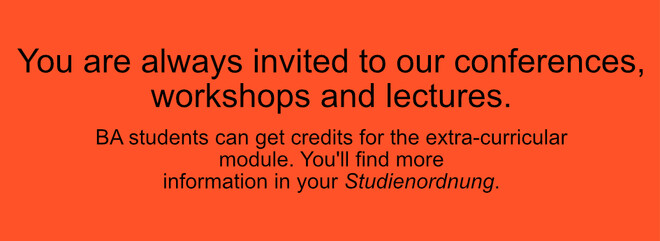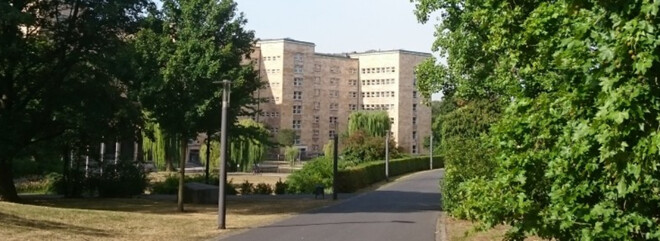Chaincourt Theatre – Summer-Semester Production 2024
Die Chaincourt Theater Company präsentiert ihre neueste Inszenierung,
Arthur Conan Doyles Sherlock Holmes: A Scandal in Bohemia.
Die Premiere findet am 5. Juli im Nebengebäude des IG-Farbenhauses statt.
In einer Zeit, in der das persönliche Image sowohl wichtiger als auch angreifbarer ist denn je, bleiben die zeitlosen Intrigen der Abenteuer des Sherlock Holmes auffallend aktuell. Die Adaption, unter der Regie der beiden Studierenden der Goethe-Universität Marisa Pfeiffer und Unice Leim, haucht dem Klassiker neues Leben ein. Ein neuer Fall für Sherlock Holmes: Die Königin von Bohemia wird erpresst. Wenige Tage vor der Bekanntgabe ihrer Verlobung, droht ihre ehemalige Flamme, die berühmten Opernsängerin und Abenteuerin Irene Adler, kompromittierende Fotos der beiden an die Presse zu schicken. Nun ist es an der berühmten Detektivin und ihrem treuen Freund und Partner Dr. John Watson, das Bild für die Königin zu beschaffen. Irene Adler, außerordentlich charmant und intelligent, hat jedoch andere Pläne. Wir laden Sie ein, das Ringen dieser großen Geister, gefüllt von Täuschungen und Deduktionen, mitzuerleben. Wird die weltberühmte Detektivin den Fall lösen können oder der verführerischen Irene Adler verfallen? Als langjährige Mitglieder der Chaincourt Theatre Company verstehen Marisa und Unice die künstlerische Vision unserer Company und verleihen Doyles Geschichte eine neue Dimension. Die Produktion weist sowohl auf der Bühne als auch hinter den Kulissen eine Mischung aus erfahrenen Schauspielern, jungen Talenten und einem kompetenten Produktionsteam hervor, alles Studierende der Goethe-Universität. Begleiten Sie uns auf eine Aufführung gefüllt mit Spannung, intellektueller Anregung und dramaturgischer Exzellenz, denn wir bringen den wohl bekanntesten Detektiv der Literatur für Sie auf die Bühne. Das Stück wird in englischer Sprache im Nebengebäude des IG-Farbenhauses aufgeführt und verspricht einen Abend voller Unterhaltung.
Premiere am 5. Juli; weitere Aufführungen sind am 6., 11., 12. und 13. Juli 2024; Beginn der Aufführungen jeweils um 19.30 Uhr im IG-Farbenhaus Nebengebäude,
Raum NG 1. 741 der Goethe-Universität Frankfurt, Westend Campus
Tickets: €10/€5 (Ermäßigung) Tickets sind eine Stunde vor Beginn der Vorstellung an der Abendkasse erhältlich; kein Kartenvorverkauf
Ansprechpartner: James Fisk, Artistic Director Chaincourt Theatre Company, Institute for English and American Studies, Goethe University Frankfurt. fisk@em.uni-frankfurt.de
Poster













